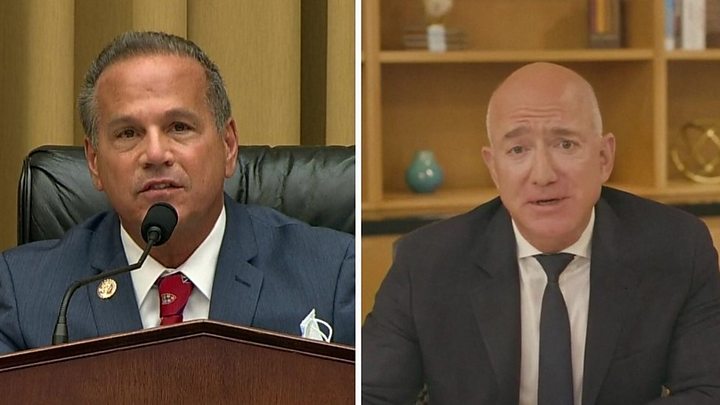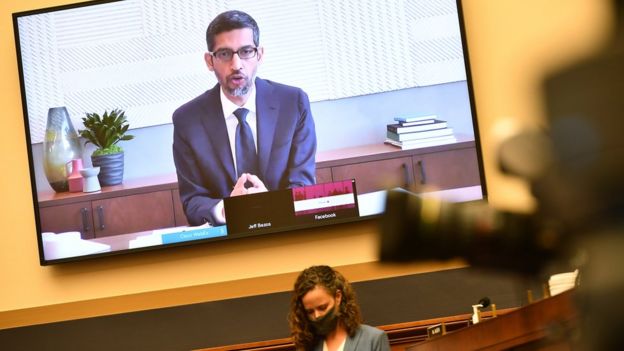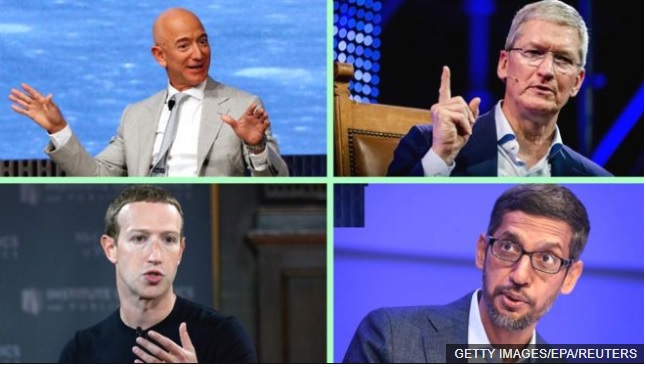The heads of some of the world’s biggest tech companies have appeared before Washington lawmakers to defend their firms against claims they abuse their power to quash competitors.
Amazon boss Jeff Bezos said the world “needs large” firms, while the heads of Facebook, Apple and Google argued their companies had spurred innovation.
The appearance comes as lawmakers consider tougher regulation and competition probes are under way.
Some critics want the firms broken up.
Democrats pressed the tech titans on competition issues, while Republicans were more concerned about how they managed information and whether they were marginalizing conservative views.
Congressman David Cicilline, the Democrat leading the congressional committee holding the hearing, said a year-long investigation by lawmakers had showed the online platforms had “wielded their power in destructive, harmful ways in order to expand”.

He said he was convinced the firms were monopolies and called for action.
“Some need to be broken up and all need to be properly regulated,” he said at the end of more than five hours of testimony.
Facebook’s Mark Zuckerberg, Amazon’s Jeff Bezos, Sundar Pichai of Google, and Tim Cook of Apple insisted they had done nothing illegal and stressed the American roots and values of their firms.
What are the main concerns about the tech giants?
At the hearing, lawmakers accused Google of having stolen content created by smaller firms, like Yelp, in order to keep users on their own web pages.
Amazon’s treatment of sellers on its site, Facebook’s acquisition of competitors such as Instagram, and Apple’s App store also drew attention.

Mr Cicilline said Amazon had an inherent conflict of interest, since it both hosts sellers and competes against them by offering similar products. Such practice has also come under scrutiny from European regulators.
“Amazon’s dual role… is fundamentally anti-competitive and Congress must take action,” he said.
However, some Republicans signalled they were not prepared to split up the firms or significantly overhaul US competition laws, with one committee member saying “big is not inherently bad”.
Republican concerns focused on perceived political bias at the firms, which they accused of suppressing conservative views.
“I’ll just cut to the chase – big tech is out to get conservatives,” said Congressman Jim Jordan, a Republican from Ohio.
CLICK HERE FOR FULL ARTICLE ON BBC


